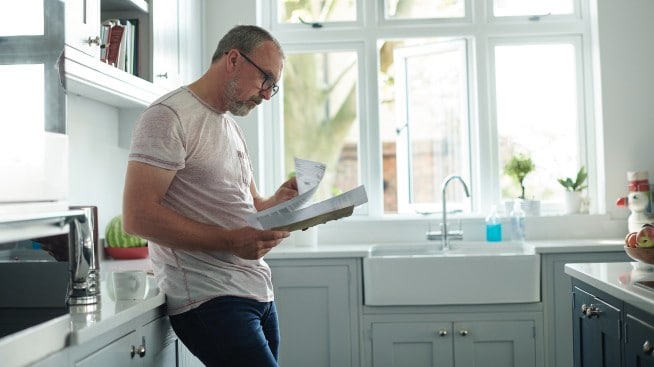Selling your house "as is": What to know

Selling a house “as is” can be a practical and time-saving option under certain circumstances. There are, however, some important drawbacks to consider and a few steps you may want to take beforehand, too. Let’s learn how to sell a house “as is,” what to know beforehand and how you can help ready your property for a smoother “as is” sale.
What does it mean to sell a house “as is”?
Selling a house “as is” means the homeowner is offering a property in its current condition, without making any repairs or improvements before the sale.
There’s a common misconception that an “as is” clause always means the property is in poor condition. An “as is” clause is just a legal definition that aims to protect sellers from future liability for known issues with property post-sale.
The "as is" clause works by informing the buyer that the property will come in its existing condition and the seller will not be responsible for any repairs or modifications. By moving forward with the “as is” clause, the buyer acknowledges and agrees to this.
Including this clause is also a method some homeowners might use to try and expedite the selling process. This doesn’t mean, however, that all potential liabilities are erased by the “as is” clause — despite selling “as is,” you’re likely still obligated to disclose any known problems that could potentially affect the home’s value. Checking your local regulations may help clarify the necessary disclosures required in an “as is” sale.
Pros and cons of selling a house “as is”
Now that we know what it means to sell a house “as is,” there are some pros and cons to consider:
Pros of selling a house “as is”
No two home sales are the same, and there’s a variety of reasons a seller might consider an “as is” clause. Here are some common scenarios that might call for selling a house “as is:”
- Swifter sales: One reason for selling a house “as is” may be time constraints. If you’re looking for a quick move, say due to a new job or personal circumstances, an “as is” sale might help speed things up. This is because selling a house “as is” can sometimes help avoid potentially lengthy negotiations over repairs or improvements, not to mention time spent implementing those repairs.
- Financial factors: Economic considerations can also come into play. For homeowners tight on funds, the cost of improvements or repairs before selling might be difficult or simply unaffordable. In these cases, for the reasons mentioned above, an “as is” clause could help remove this hurdle from the negotiation process.
- Estate situations: In certain cases of inherited properties or estate sales, the executor may be reluctant to handle or oversee property improvements. Opting to sell the house “as is” could make the process less demanding, freeing parties involved (such as executors or family members) from potential time costs, be it contingencies, repairs or modifications.
Cons of selling a house “as is”
- Fewer buyers: Because there’s a general misconception that houses being sold “as is” are likely to be in disrepair or hiding hidden issues, some buyers may be more cautious about considering an “as is” sale.
- Lower price: Reduced demand (and possibly reduced curb appeal) may cause you to potentially lower the sales price of the property compared to similar properties without an "as is” clause.
How to sell a house "as is"
Selling a house “as is” operates much like a traditional home sale, but with some unique steps and considerations. Here's how to sell a home “as is:”
Consider a real estate agent
Though not always necessary, using a real estate agent with experience in "as is" sales might be beneficial. They understand the small details of these transactions and may have valuable advice for listing the property and attracting potential buyers.
Setting a realistic price
Price setting is key when you plan to sell a house "as is." This means considering the property's condition and any repairs or upgrades a buyer might need to make. A fair price that reflects these factors could help attract potential buyers and lead to quicker sales.
Listing the property "as is"
You'll need to clearly mention "as is" in your property listing. This helps set expectations for buyers from the start, likely reducing the chance of disputes or similar stumbling blocks later.
Required disclosures
While you're selling the house "as is," you're still legally required to disclose any known material defects in the property. Taking care to share any known issues that could affect the value or habitability of the home can help prevent disputes post-sale.
Negotiations and contingencies
While selling "as is" generally means the seller won’t complete any repairs or improvements, it doesn't always mean there will be no negotiations. Buyers might still request inspections and use the findings to negotiate the price. But, it's up to you as the seller to decide if you're willing to adjust.
Finalize the sale
Once you agree on terms, the sale can proceed as usual, with the buyer securing any required financing, signing the legal documents and closing the sale.
Preparing your home for "as is" sale
While the term "sell home as is" generally implies that major repairs or improvements aren't on the cards, there are steps you could take to make your property more attractive to potential buyers. Here's a few practical tips selling your house "as is:"
Maximize curb appeal
First impressions matter, even in an "as is" sale. Basic lawn care, window cleaning and some decluttering of the front yard may go a long way in creating an appealing first impression. These minor touches won't break the bank but could make your property more enticing to buyers.
Clean and declutter
While you won't be making major improvements or renovations, a clean and decluttered home is generally more appealing. Consider a deep clean, removing any personal belongings and doing some organizing to create a better sense of space. This could help potential buyers better visualize the property's potential.
Be transparent and informative
When selling a house “as is,” transparency is paramount. Documenting and sharing any known issues with potential buyers fulfills your legal obligations to your buyers — and helps build trust too.
Highlight the positives
Just because it's an "as is" sale doesn't mean you can't showcase the property's best features. Whether it's a great location, a large backyard or recent upgrades, make sure to highlight these positives in your listing.
In summary
Selling a house "as is" could provide a few advantages for homeowners under certain circumstances. From a faster sale to bypassing upfront repair costs, there's good reason many sellers might want to sell a house "as is." But remember — transparency, realistic pricing and strategic presentation are key and may even enhance the appeal of your property.



